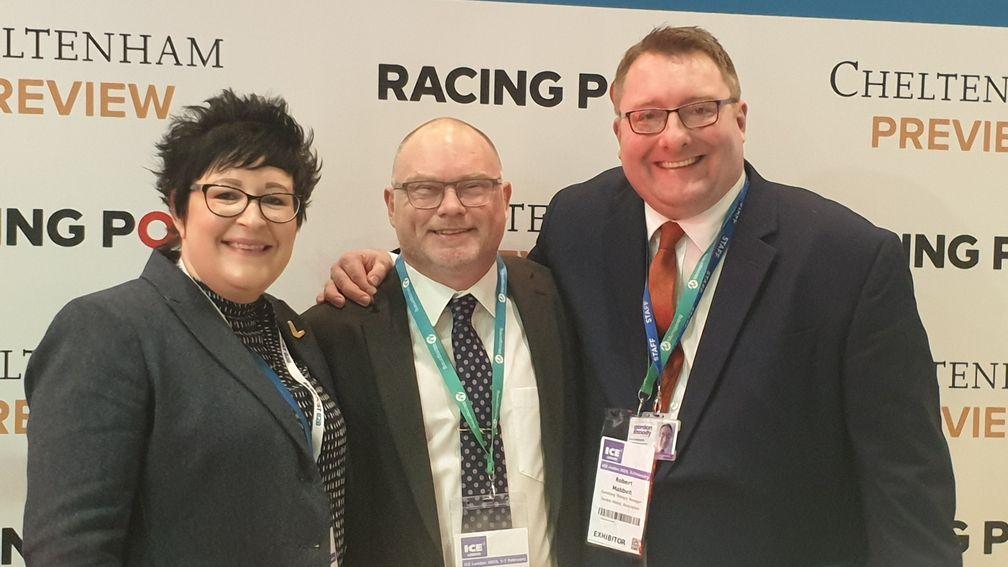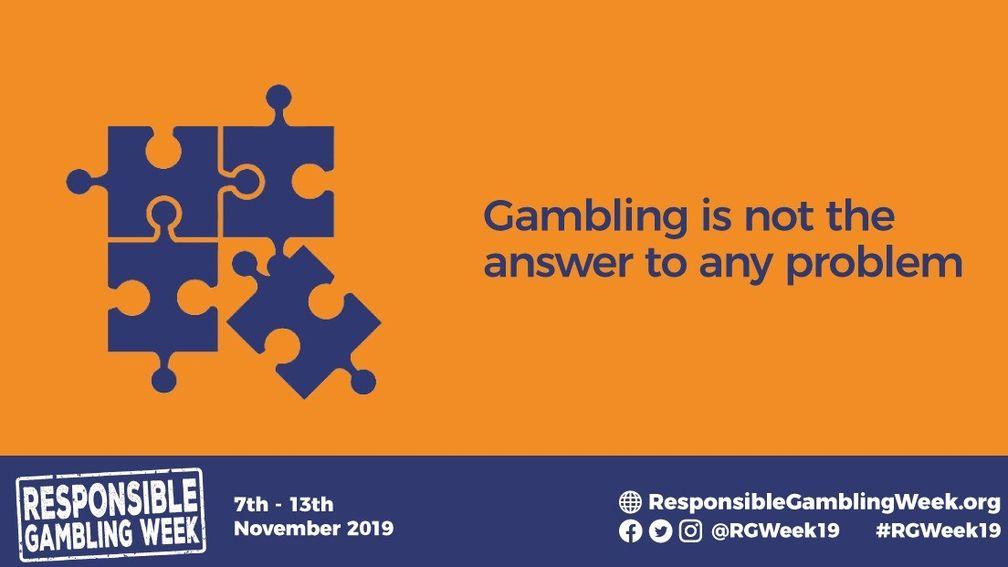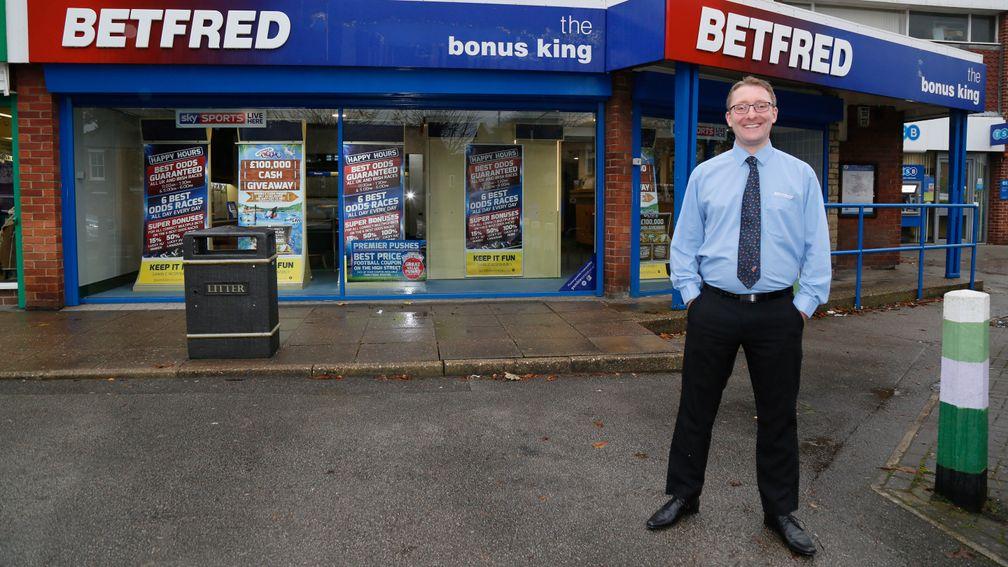- More
'There should be no stigma in asking for help with problem gambling'
Rob Mabbett discusses his role in helping gambling addicts

"In betting shops we used to put the GamCare leaflets in the toilets because customers thought it shameful to be seen picking one up and reaching out for help"
When Rob Mabbett left his role in the betting industry to join the team at the Gordon Moody Association rehabilitating problem gamblers he was sometimes asked why he had switched sides, asked what had turned him off the gambling industry.
He would reply he had not changed at all, that being a good betting shop manager meant ensuring customers suffered no harm from their gambling.
"Everyone who works in a betting shop has a role in responsible gambling," Mabbett says now, a year after joining Gordon Moody and three years after becoming Racing Post/SIS Betting Shop Manager of the Year while with Betfred.
"A few said I'd become anti-gambling, that I'd gone over to the other side, the dark side as some said. But during my time as Manager of the Year I'd often spoken about responsible gambling being good for business, good for the future of betting shops and good for customers and staff because they have an enjoyable, safe environment to bet in and work in.
"So my move to the treatment side wasn't to do with disillusionment. It was to do with exploring a topic that was developing quickly. The dialogue was changing; there was a raised consciousness about the need to protect customers.
"Everybody should understand the risks of gambling. People talk about risk in a negative way but taking risk in having a bet is part of the overall pleasure and that needs to be acknowledged. It's similar to how we go on a fairground ride to experience risk. It's about not exposing people to gambling harm, which is different to risk.
"In my role at Betfred, first as a shop manager and later looking after a number of shops as a group sales manager, at the core was ensuring my customers enjoyed their play in a safe way.

"As an old-time manager you naturally absorbed more information than you realised. On Saturday at 5pm, when the afternoon racing and football had finished, we'd sweep through the bets to see who'd had a good win, who was down – we would know just by the handwriting. With self-service betting and fixed-odds terminals that's a lot harder.
"Obviously at Gordon Moody we don't advocate gambling. We don't tell people who come to our service 'that's what you need to stay in control'. People who come to Gordon Moody generally have serious pathological issues they need to resolve.
"It's the same with contact through Gambling Therapy. When people come to us it's usually gone beyond the point of control, they just need to stop."
Mabbett is manager of Gambling Therapy, which operates contact channels via an app and website and last year received five million hits from all over the world.
"The website has 28 translations and there are 14 translated languages on the app. We have a dozen advisers in the UK and around Europe who speak Polish, Russian, French, Spanish and Arabic.
"When people come to us they need more than advice they need help and we have a team of counsellors and therapists.
"It's completely international. We had a call from the Philippines from someone who was struggling. He sought help, did well with his own recovery and wanted to give back so he set up a Gamblers Anonymous branch in the Philippines and now has 100 attendees.
"We also do a 'family and friends' service, which is important because gambling can be shrouded in mystery. When someone is experiencing difficulties they can be very secretive. It's distressing for the whole family, so it's good to give them advice as well.
"In betting shops in the past we used to put the GamCare leaflets in the toilets because customers thought it shameful or embarrassing to be seen picking one up and reaching out for help. It shouldn't have that stigma. Now we have a phone app it's more discreet, people can text for advice wherever they are."
Mabbett has advice for everyone to keep their gambling safe: "If you plan to gamble, agree with yourself before you go out what you're going to play and how much you're going to spend.

"The time spent gambling, particularly with low-stake machines, can be as harmful as how much cash you spend. It means your whole life is taken up with gambling. One of the key markers that there's a problem is when gambling becomes the all-consuming part of your life, that when you wake up, when you're at work you're thinking about gambling.
"Learn when you're vulnerable and avoid gambling at those times: when you're angry, upset, bored. Don't use gambling as a release, as self-medication when you've had a negative life event.
"And download our Gambling Therapy app, keep it on your phone near your betting accounts and use it before you reach crisis point."
If you are concerned about your gambling and are worried you may have a problem, click here to find advice on how you can receive help
Published on inBusiness
Last updated
- It could have been worse - but the budget heaps more pressure on British racing's leadership
- Warning that many trainers could be put out of business as British racing examines budget announcement
- William Hill parent company Evoke reports strong progress despite impact from sports results
- Betting giant Entain raises projections for the year after stronger than expected performance
- Flutter Entertainment agrees £2 billion deal to buy leading Italian operator Snaitech
- It could have been worse - but the budget heaps more pressure on British racing's leadership
- Warning that many trainers could be put out of business as British racing examines budget announcement
- William Hill parent company Evoke reports strong progress despite impact from sports results
- Betting giant Entain raises projections for the year after stronger than expected performance
- Flutter Entertainment agrees £2 billion deal to buy leading Italian operator Snaitech